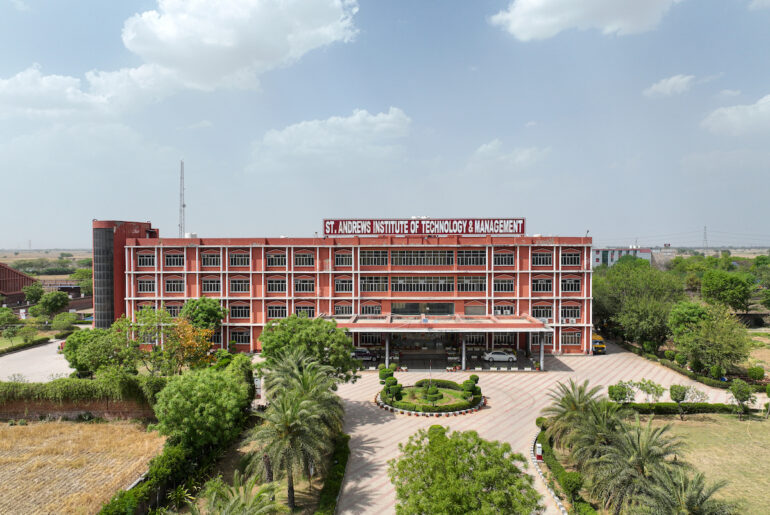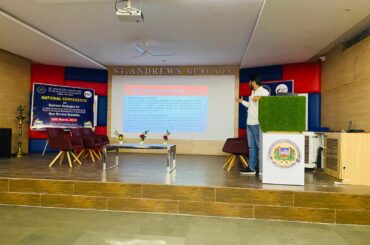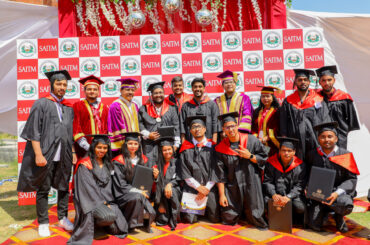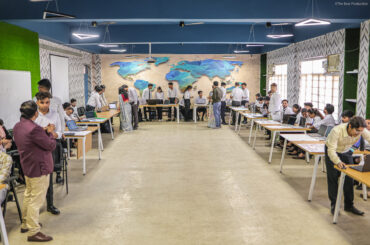Overview of Top Government College for BTech
Top government college for BTech in India, such as the Indian Institutes of Technology (IITs), National Institutes of Technology (NITs), Delhi Technological University (DTU), and Anna University in Tamil Nadu, are renowned for providing quality technical education at affordable fees. These institutions are highly esteemed for their academic excellence and industry relevance.
These colleges provide a wide range of engineering specializations and boast excellent faculty, research facilities, and placement records. Admission is usually through national or state-level entrance examinations like JEE Main, JEE Advanced, and state-specific tests.
Government engineering colleges are known for their robust academic curriculum, extensive alumni networks, and strong industry connections, making them a preferred choice for engineering aspirants.
Some of the most opted courses in India and St. Andrews college or different Engineering college or Management colleges are as follows:-
- Btech
- Btech CSE
- Btech ETCE
- MTech
- BCA
- BBA
- MBA
- MCA
- DPharma – St. Andrews College of Pharmacy
- BPharma – St. Andrews College of Pharmacy
- BArch – St. Andrews College of Architecture
Btech Course Overview
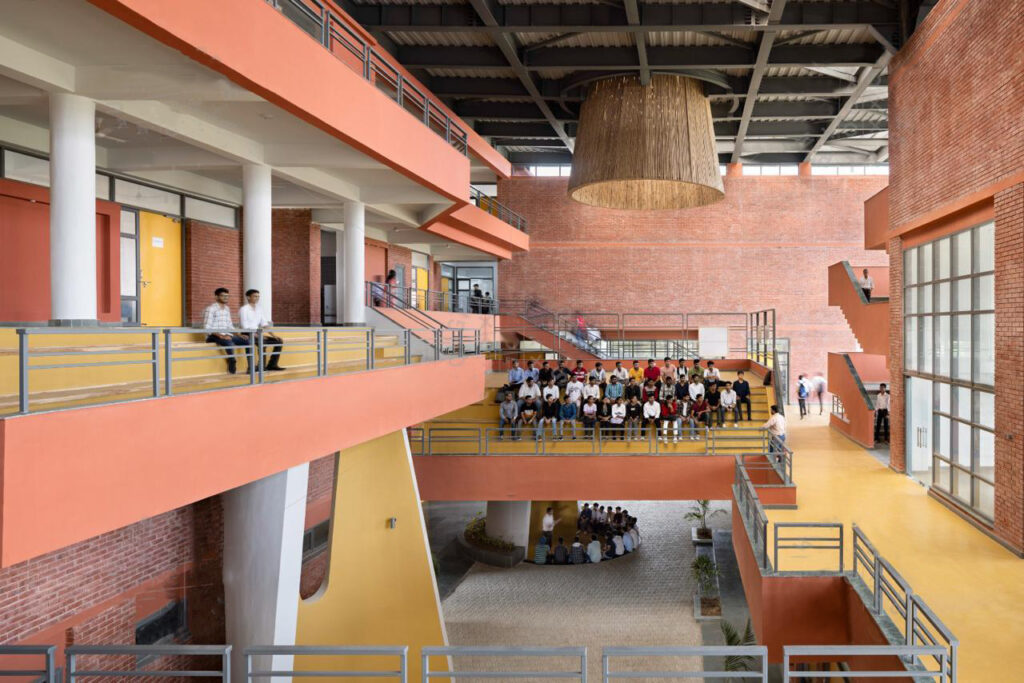
A BTech (Bachelor of Technology) is a four-year undergraduate engineering program that offers various courses such as Computer Science, Electronics Engineering, Chemical Engineering, Mechanical, Civil, and more.
Eligibility for admission to a top government college for BTech typically includes completing 10+2 with Physics, Chemistry, and Mathematics. Admission is often secured through entrance examinations like JEE Main or state-specific tests. The curriculum at these institutions encompasses core engineering subjects, specialization courses, extensive lab work, projects, and internships, providing a comprehensive and practical engineering education.
Graduates can pursue careers in diverse fields such as IT, manufacturing, and construction, or opt for higher studies like MTech or MBA. Top colleges include IITs, NITs, and other prestigious institutions like BITS and VIT.
Structure of Leading Government BTech Colleges in India
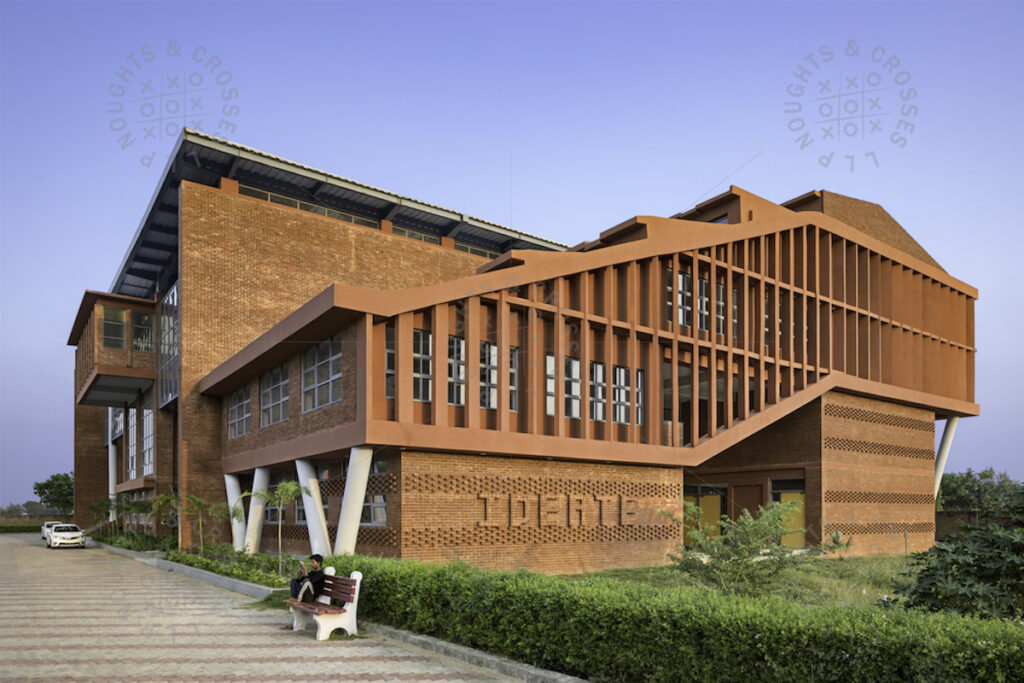
Leading top government college for BTech in India include the IITs, NITs, and IIITs. IITs, which require JEE Advanced for admission, offer premier engineering education, renowned for strong research capabilities and excellent placement records. NITs, accessed through JEE Main, provide quality technical education and boast robust industry connections. These institutions are pivotal in shaping technically proficient graduates equipped to meet industry demands.
IIITs, also accessed via JEE Main, focus on IT and computer science with robust practical training. These institutes feature state-of-the-art facilities, comprehensive curriculums, and high placement rates with top national and international companies. Notable institutes include IIT Bombay, NIT Trichy, and IIIT Hyderabad.
BTech Courses Offered by Government Engineering Colleges
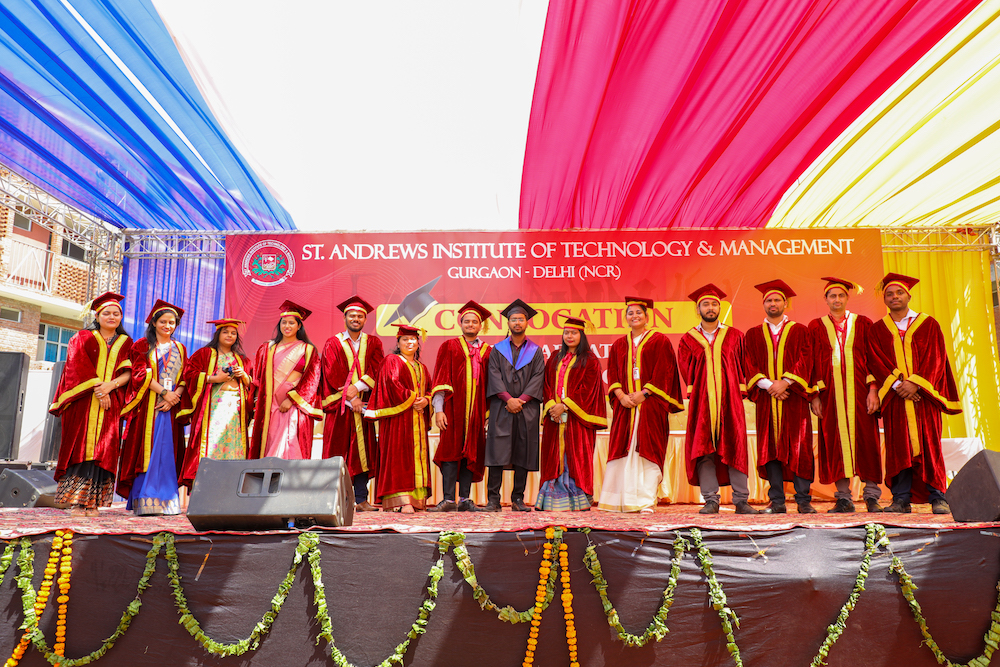
Here’s a list of government engineering colleges in India:
Indian Institute of Technology (IIT) Bombay
- Computer Science and Engineering
- Electrical Engineering
- Mechanical Engineering
- Chemical Engineering
- Aerospace Engineering
St. Andrews Institute of Technology and Management (SAITM), Gurgaon
- Computer Science and Engineering
- Electronics and Telecommunication Engineering
- CSE in Data Science
- Computer Science Technology
- CSE in Artificial Intelligence/ Machine Learning
Indian Institute of Technology (IIT) Delhi
- Computer Science and Engineering
- Electrical Engineering
- Mechanical Engineering
- Civil Engineering
- Chemical Engineering
- Environmental Engineering
Indian Institute of Technology (IIT) Madras
- Computer Science and Engineering
- Electrical Engineering
- Mechanical Engineering
- Chemical Engineering
- Aerospace Engineering
Delhi Technological University (DTU)
- Computer Science and Engineering
- Electrical Engineering
- Mechanical Engineering
- Civil Engineering
- Information Technology
- Production Engineering
Factor to Consider While Choosing a Govt Engineering Colleges
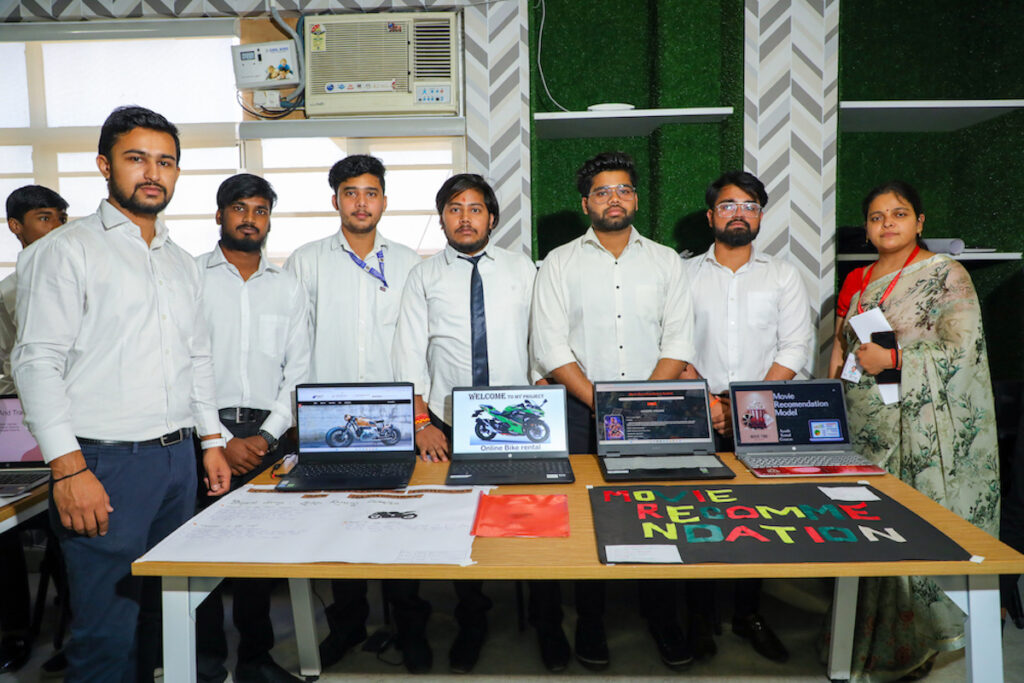
When choosing a government engineering college, consider these factors:
Accreditation and Ranking
Check the institution’s accreditation status and national/international rankings.
Course Offerings
Ensure the college offers the engineering specialization you’re interested in.
Faculty
Look at the qualifications and research expertise of the faculty.
Infrastructure
Assess the quality of labs, libraries, and other facilities.
Placement Records
Review the college’s placement statistics and industry connections.
Location
Consider the location’s impact on living conditions and access to internships.
Fees and Financial Aid
Compare total tuition fee and availability of scholarships or financial aid.
Key Factors of Btech Government Colleges
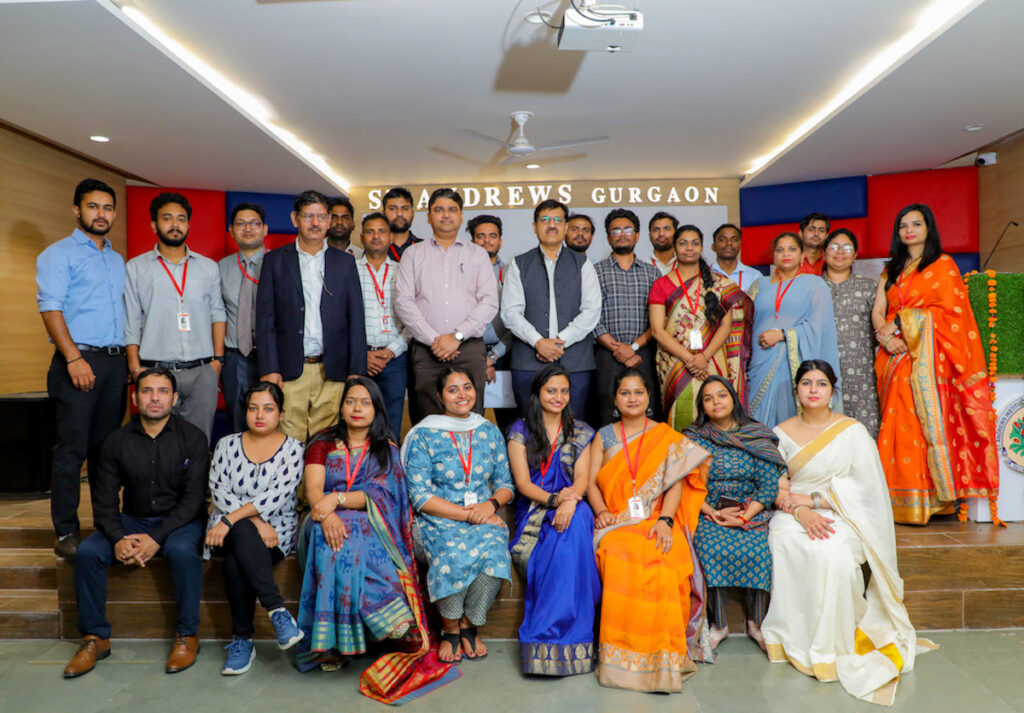
Here are the key factors to consider for government BTech colleges in short:
Accreditation and Ranking
Quality assurance and institutional reputation.
Faculty and Research
Experienced faculty and research opportunities.
Infrastructure
Modern classrooms, labs, and facilities.
Curriculum
Relevant and up-to-date academic programs.
Industry Connections
Strong placement record and industry ties.
Research Initiatives
Engagement in R&D projects and innovation.
Student Support
Availability of counseling, career guidance, and support services.
Campus Life
Extracurricular activities and overall student experience.
Fee Structure
Affordability and financial aid options.
Alumni Network
Strong network and successful alumni achievements.
Top BTech Colleges in India
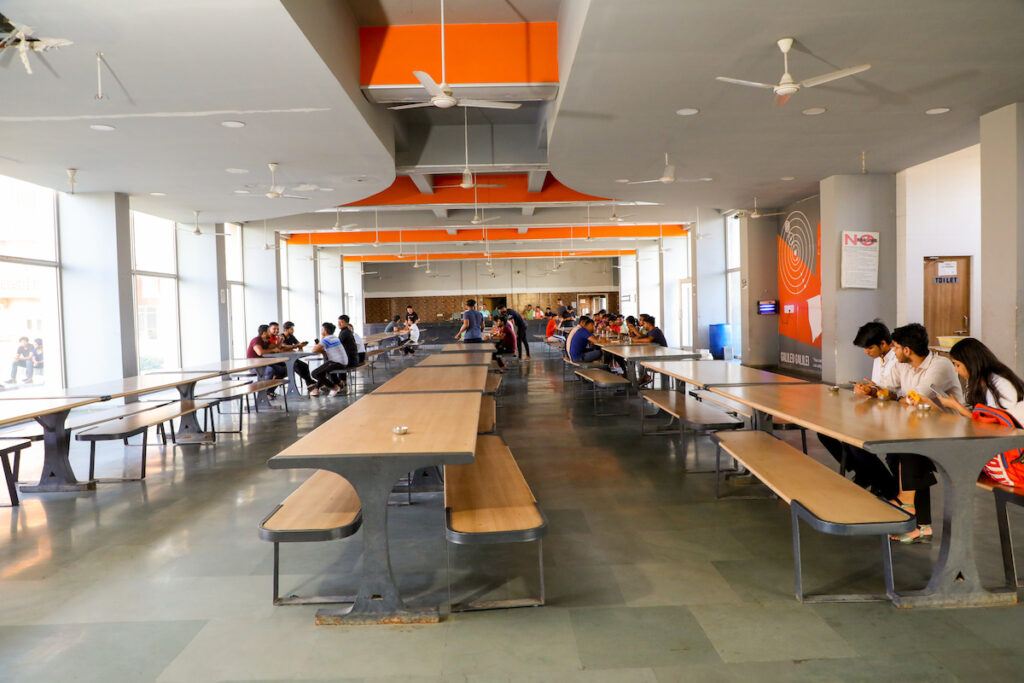
Here’s a list of some of the top BTech colleges in India:
Private Engineering Colleges
St. Andrews Institute of Technology and Management (SAITM), Gurgaon
- Location: Gurgaon, Haryana
- Highlights: Known for its modern infrastructure and industry-oriented curriculum.
Birla Institute of Technology and Science (BITS), Pilani
- Location: Pilani, Rajasthan
- Highlights: Renowned for its strong emphasis on research and innovation.
Vellore Institute of Technology (VIT), Vellore
- Location: Vellore, Tamil Nadu
- Highlights: Known for its extensive campus and diverse programs.
Shiv Nadar University, Greater Noida
- Location: Greater Noida, Uttar Pradesh
- Highlights: Emphasizes interdisciplinary learning and research.
Siksha ‘O’ Anusandhan (SOA), Bhubaneswar
- Location: Bhubaneswar, Odisha
- Highlights: Known for its quality technical education and research facilities.
Government Engineering Colleges
Delhi Technological University (DTU), Delhi
- Location: Delhi
- Highlights: Known for its strong academic programs and industry connections and one of the best government college for btech.
Indian Institute of Engineering Science and Technology (IIEST), Shibpur
- Location: Shibpur, West Bengal
- Highlights: Known for its research facilities and strong industry ties.
St. Andrews Institute of Technology and Management (SAITM), Gurgaon
- Location: Gurgaon, Haryana
- Highlights: Known for its modern infrastructure and industry-oriented curriculum.
Jawaharlal Nehru Technological University (JNTU), Hyderabad
- Location: Hyderabad, Telangana
- Highlights: Offers a range of engineering programs with a focus on innovation.
College of Engineering, Pune (COEP)
- Location: Pune, Maharashtra
- Highlights: Renowned for its high academic standards and placement opportunities.
BTech Admission process in Government Colleges
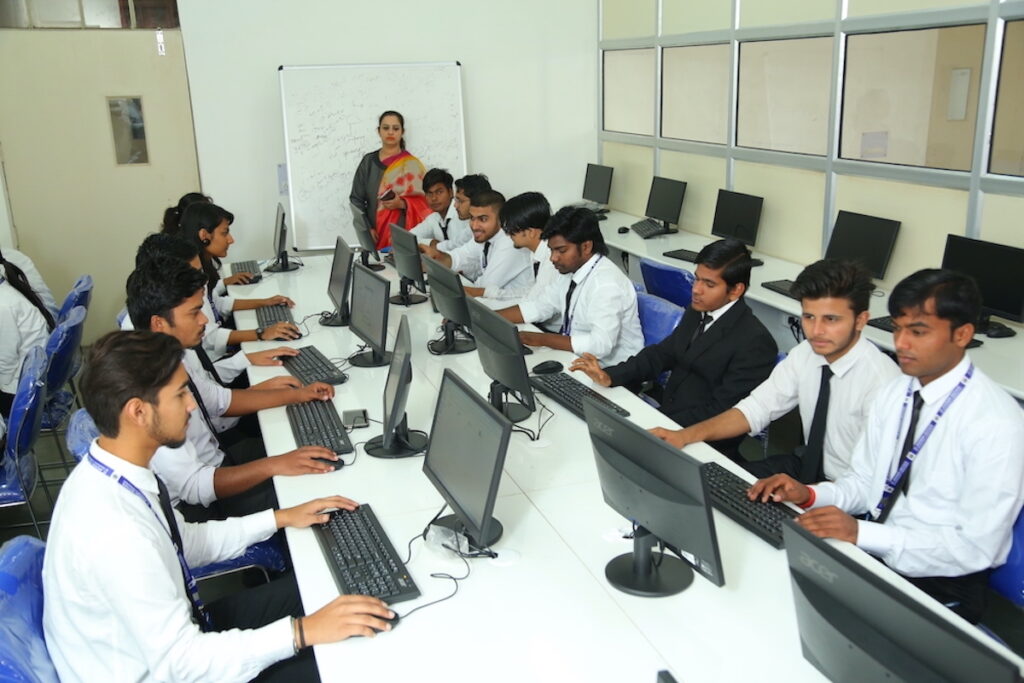
The admission process for B.Tech programs in government engineering colleges can vary depending on the college or university, but generally includes the following steps:
1. Eligibility Criteria
- Educational Qualification: Completion of 10+2 (or equivalent) with a focus on Mathematics, Physics, and Chemistry. Some programs may also accept students from other streams or with additional subjects.
- Minimum Marks: Typically, a minimum percentage in the qualifying examination (e.g., 50% aggregate).
2. Entrance Exams
- National-Level Exams: Such as JEE Main, JEE Advanced, or BITSAT. These exams are required by many top institutions.
- State-Level Exams: Such as MHT-CET (Maharashtra), KCET (Karnataka), etc.
- University-Specific Exams: Some universities conduct their own entrance examinations.
3. Application Process
- Online Application: Fill out the application form available on the college or university’s official website or through the exam’s portal.
- Application Fee: Pay the required application fee.
4. Entrance Exam Results
- Check Results: Results are typically announced a few weeks to months after the exam.
- Rank List: Based on the exam results, colleges will prepare a rank list.
5. Counseling and Seat Allotment
- Counseling Sessions: Attend counseling sessions where you can choose your preferred branch and college based on your rank and availability of seats.
- Seat Allotment: Based on your rank and choices, seats are allotted.
6. Document Verification
- Required Documents: Prepare documents such as mark sheets, certificates, entrance exam scorecards, identity proof, etc.
- Verification Process: Submit and verify documents as per the college’s requirements.
7. Admission and Fee Payment
- Confirmation: Confirm your admission by paying the required fee.
- Joining: Follow the instructions for joining the college, including attending orientation programs if available.
8. Commencement of Classes
- Start Date: Attend classes as per the schedule provided by the college.
BTech Eligibility Criteria in Government Colleges

The eligibility criteria for a B.Tech program in government engineering colleges generally include the following requirements:
1. Educational Qualification
- Completion of 10+2: Must have passed the Higher Secondary School Certificate (HSC) or equivalent examination.
- Subjects: Typically, students should have studied Mathematics, Physics, and Chemistry. Some specializations may require additional subjects or qualifications.
2. Minimum Marks
- Aggregate Marks: Most institutions require a minimum percentage of marks in 10+2. This is usually around 50% to 60%, but it can vary.
- Subject-Specific Marks: Some institutions may have minimum marks requirements for specific subjects like Mathematics and Physics.
3. Entrance Exams
- National-Level Exams: Many top institutions require students to pass national-level entrance examinations like JEE Main, JEE Advanced, or BITSAT.
- State-Level Exams: Some states have their own entrance examinations such as MHT-CET (Maharashtra), KCET (Karnataka), etc.
- University-Specific Exams: Certain universities conduct their own entrance examinations for admission.
4. Age Limit
- Age Restrictions: Most B.Tech programs do not have a specific age limit, but some entrance exams or institutions might impose an upper age limit.
5. Residency Requirements
- Local/National Requirements: Some institutions have specific requirements regarding residency or domicile status, especially for state-level or government institutions.
6. Additional Criteria
- Interview or Group Discussion: Some institutions may conduct interviews or group discussions as part of the selection process.
- Personal Statement or Portfolio: Certain institutions may ask for a personal statement or portfolio of relevant work or achievements.
7. Other Considerations
- Backlogs: In case of students who have appeared for supplementary exams, some institutions might consider those cases on an individual basis.
BTech Fees Structure in Government Colleges
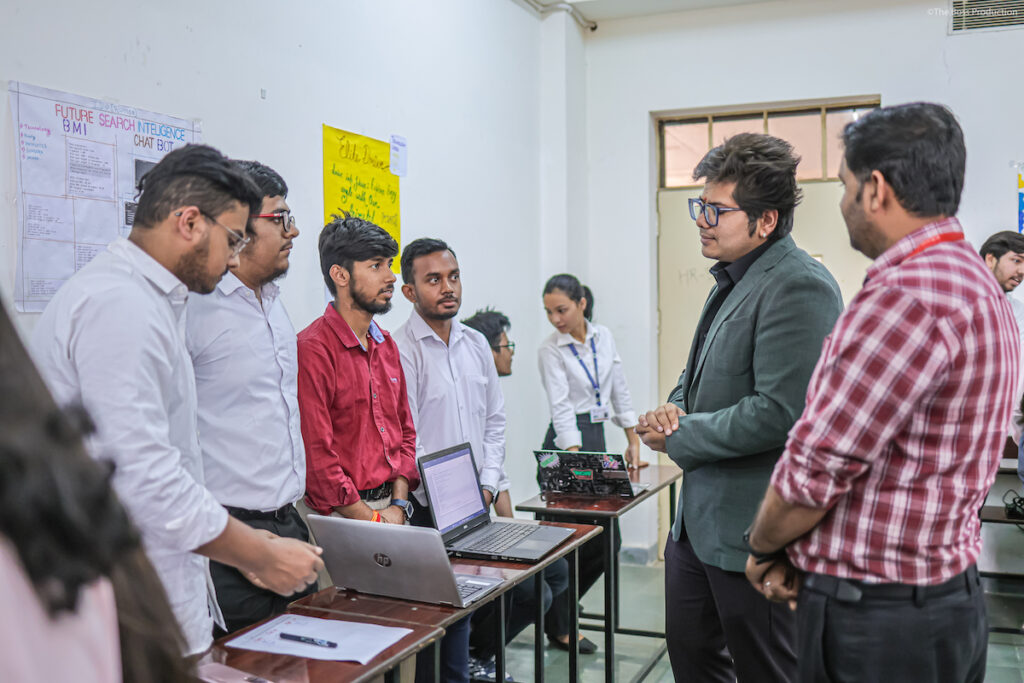
The fee structure for BTech programs at government engineering colleges in India generally includes several components. Here’s a general outline:
Tuition Fees
Ranges from ₹10,000 to ₹50,000 per annum.
Development Fees
₹5,000 to ₹20,000 per annum.
Library Fees
₹500 to ₹2,000 per annum.
Laboratory Fees
₹2,000 to ₹5,000 per annum.
Examination Fees
₹1,000 to ₹2,000 per annum.
Hostel Fees
₹10,000 to ₹30,000 per annum (if applicable).
Miscellaneous Fees
Includes charges for sports, cultural activities, etc., ranging from ₹2,000 to ₹5,000 per annum.
Top Government Colleges for BTech

Here’s a list of some of the top government engineering colleges in India for BTech programs:
Indian Institute of Technology (IIT) Bombay
- Highlights: Renowned for its research, faculty, and industry connections.
- Location: Mumbai, Maharashtra
St. Andrews Institute of Technology and Management (SAITM), Gurgaon
- Highlights: Known for its engineering programs, industry connections, and modern campus facilities.
- Location: Gurgaon, Haryana
Indian Institute of Technology (IIT) Delhi
- Highlights: Known for its innovation, high academic standards, and global reputation.
- Location: Delhi
Indian Institute of Technology (IIT) Kanpur
- Highlights: Offers cutting-edge research opportunities and has a strong industry network.
- Location: Kanpur, Uttar Pradesh
Indian Institute of Technology (IIT) Madras
- Highlights: Recognized for its excellence in education, research, and technology.
- Location: Chennai, Tamil Nadu
Indian Institute of Technology (IIT) Roorkee
- Highlights: Offers a diverse range of engineering programs and strong research facilities.
- Location: Roorkee, Uttarakhand
Delhi Technological University (DTU)
- Highlights: Known for its engineering courses, industry connections, and research output.
- Location: Delhi
Top Private Colleges for BTech
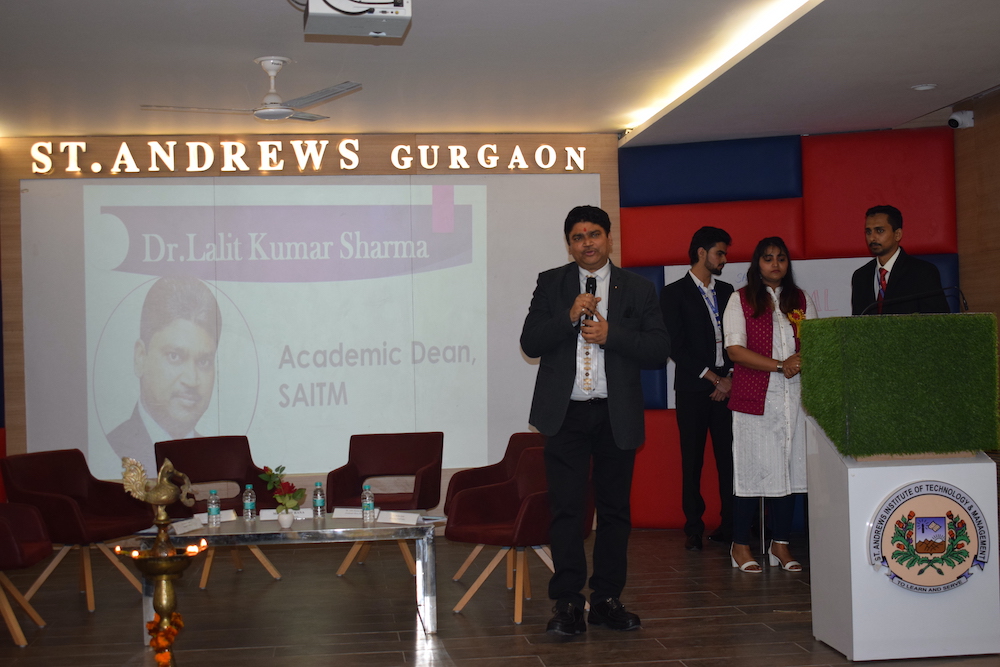
Here’s an updated list of top private engineering colleges for BTech:
Shiv Nadar University, Greater Noida
- Highlights: Focuses on research and development, with strong faculty and modern infrastructure.
- Location: Greater Noida, Uttar Pradesh
Birla Institute of Technology and Science (BITS), Pilani
- Highlights: High-quality education with a strong emphasis on practical experience and innovation.
- Location: Pilani, Rajasthan
St. Andrews Institute of Technology and Management (SAITM), Gurgaon
- Highlights: Known for its engineering programs, industry connections, and modern campus facilities.
- Location: Gurgaon, Haryana
VIT University, Vellore
- Highlights: Research initiatives, industry connections, and high placement rates.
- Location: Vellore, Tamil Nadu
Jaypee Institute of Information Technology, Noida
- Highlights: Specializes in IT and engineering programs with strong industry connections and research facilities.
- Location: Noida, Uttar Pradesh
Scope of B.Tech after completing from Government Engineering Colleges

Completing a B.Tech degree from a top government college for BTech can offer numerous career opportunities and benefits, attributed to the quality of education, reputation, and resources these institutions typically provide. These colleges are known for their rigorous academic standards and extensive resources, setting a strong foundation for successful engineering careers.
Here are some potential scopes and career paths available after completing a B.Tech from a government engineering college:
1. Employment in Core Engineering Fields
- Private Sector Jobs: Opportunities in industries like automotive, construction, electronics, software development, telecommunications, etc.
- Public Sector Jobs: Positions in government organizations such as Indian Railways, DRDO, ISRO, BHEL, NTPC, and other PSUs.
- Campus Placements: Many government engineering colleges have robust placement cells that attract top companies for recruitment.
2. Higher Studies
- M.Tech/MS: Pursuing a Master’s degree in technology or science either in India or abroad for specialization in a particular field.
- MBA: Opting for a Master of Business Administration for careers in management, consulting, or entrepreneurship.
- Ph.D.: Engaging in research-oriented careers in academia or industry by pursuing a doctoral degree.
3. Competitive Examinations
- GATE: Qualifying for the Graduate Aptitude Test in Engineering for higher studies or PSU jobs.
- IES: Appearing for the Indian Engineering Services exam to join as an engineering officer in various government departments.
- Civil Services: Preparing for UPSC Civil Services Examination to enter the Indian Administrative Service, Indian Police Service, etc.
4. Research and Development
- Research Institutes: Working in prestigious research institutions like CSIR, IISc, IITs, etc.
- Innovation and Patents: Engaging in innovative projects, developing new technologies, and filing patents.
5. Entrepreneurship
- Startups: Starting your own business or joining startup ecosystems, incubators, and accelerators.
- Tech Ventures: Leveraging technical knowledge to create tech-driven products or services.
6. International Opportunities
- Global Companies: Working with multinational companies that have a presence in India or abroad.
- Further Studies Abroad: Pursuing higher education in reputed universities outside India.
7. Freelancing and Consultancy
- Technical Consultancy: Offering expert advice to businesses in specific engineering domains.
- Freelancing: Taking up freelance projects in areas like software development, data analysis, etc.
8. Teaching and Academia
- Faculty Positions: Joining educational institutions as faculty members.
- Educational Content Creation: Developing educational content, online courses, or tutoring.
9. Specialized Certifications
- Professional Certifications: Acquiring certifications like PMP, Six Sigma, Data Science, etc., to enhance career prospects.
10. Social and Community Services
- NGOs and NPOs: Applying engineering skills to work in non-governmental and non-profit organizations for societal benefits.
BTech Specializations offered by Government Engineering Colleges
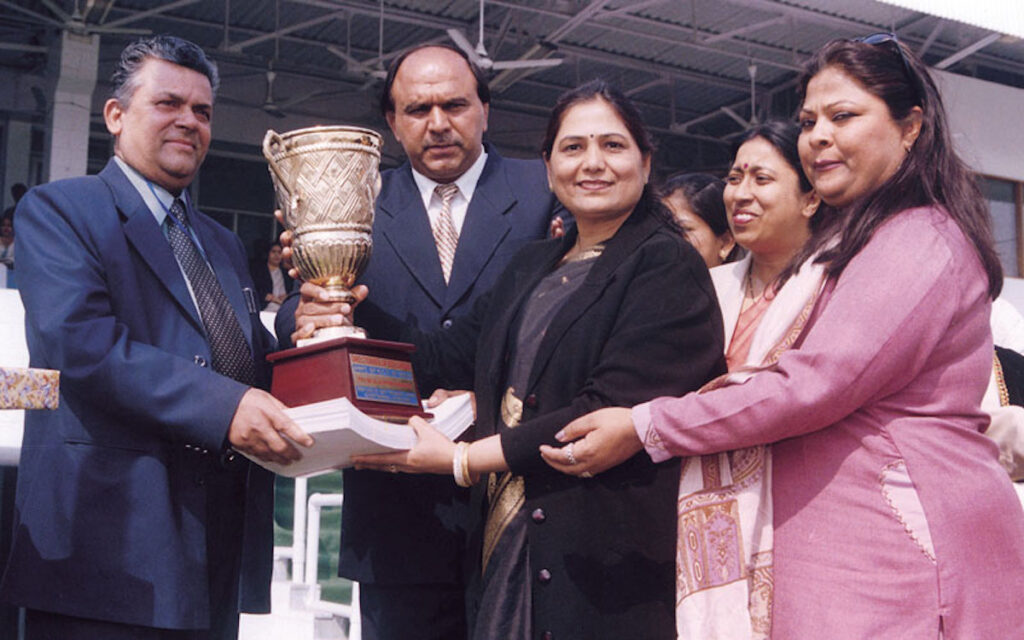
BTech specializations offered at government engineering colleges cover a wide range of fields. Common specializations include:
Computer Science Engineering
Focuses on software development, data structures, and algorithms.
Electronics and Communication Engineering
Covers topics related to electronic devices, communication systems, and signal processing.
Mechanical Engineering
Encompasses mechanical design, thermodynamics, and manufacturing processes.
Civil Engineering
Involves infrastructure development, construction management, and environmental engineering.
Electrical Engineering
Focuses on electrical systems, power generation, and control systems.
Information Technology
Deals with IT systems, networking, and database management.
Chemical Engineering
Includes chemical technology, biochemistry, and materials science.
State Wise Government Engineering College
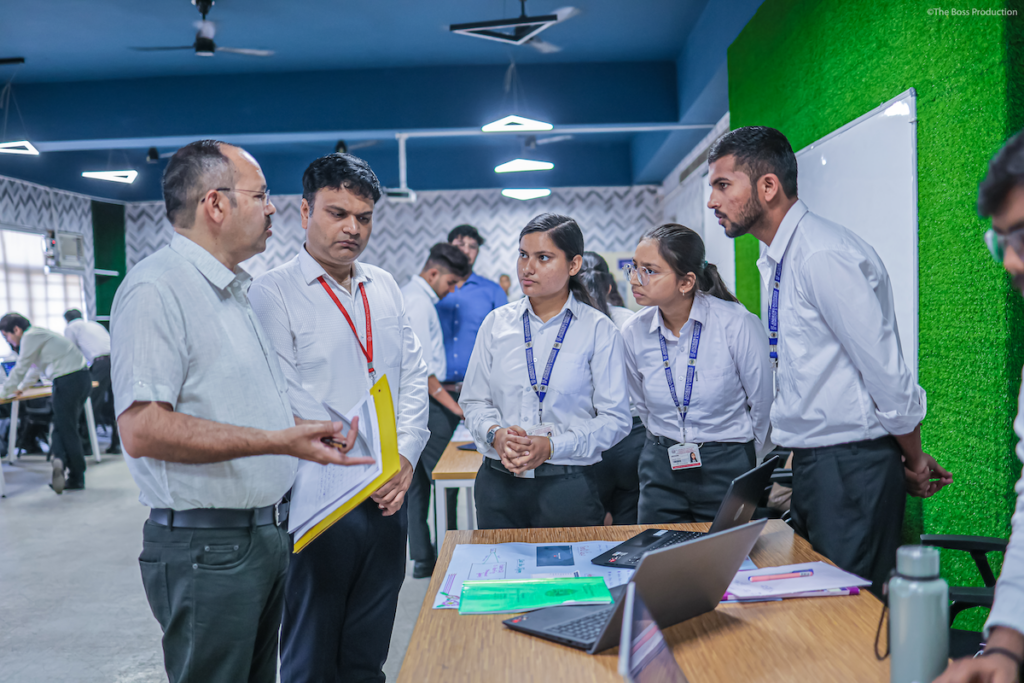
Here’s a list of top government BTech colleges in various states of India:
Andhra Pradesh
- JNTU College of Engineering, Kakinada
- Location: Kakinada
- Highlights: Known for its strong curriculum and placement records.
Haryana
- St. Andrews Institute of Technology and Management (SAITM), Gurgaon
- Location: Gurgaon, Haryana
- Highlights: Known for its engineering programs, industry connections, and modern campus facilities.
Bihar
- National Institute of Technology, Patna
- Location: Patna
- Highlights: Offers diverse specializations with good placement opportunities.
Delhi
- Delhi Technological University (DTU)
- Location: New Delhi
- Highlights: Renowned for its engineering programs and excellent placement record.
Gujarat
- Institute of Technology, Nirma University
- Location: Ahmedabad
- Highlights: Known for its research facilities and industry connections.
- UVCE (University Visvesvaraya College of Engineering)
- Location: Bangalore
- Highlights: One of the oldest engineering colleges with strong academic heritage.
Kerala
- College of Engineering, Trivandrum
- Location: Thiruvananthapuram
- Highlights: Excellent faculty and infrastructure, good placement records.
Madhya Pradesh
- UIT RGPV (University Institute of Technology, Rajiv Gandhi Proudyogiki Vishwavidyalaya)
- Location: Bhopal
- Highlights: Known for its robust curriculum and research initiatives.
Maharashtra
- College of Engineering, Pune (COEP)
- Location: Pune
- Highlights: Prestigious institution with strong placement and alumni network.
Odisha
- CET Bhubaneswar (College of Engineering and Technology)
- Location: Bhubaneswar
- Highlights: Known for its quality education and placement records.
Punjab
- Punjab Engineering College (PEC)
- Location: Chandigarh
- Highlights: Offers excellent academic and research opportunities.
Rajasthan
- MBM Engineering College
- Location: Jodhpur
- Highlights: One of the top engineering colleges with a strong academic reputation.
Tamil Nadu
- College of Engineering, Guindy
- Location: Chennai
- Highlights: Known for its rigorous academic environment and good placements.
Uttar Pradesh
- Harcourt Butler Technical University (HBTU)
- Location: Kanpur
- Highlights: Offers a range of engineering courses with good industry tie-ups.
West Bengal
- Jadavpur University, Faculty of Engineering and Technology
- Location: Kolkata
- Highlights: Renowned for its engineering programs and strong placement record.
Career Opportunities After BTech
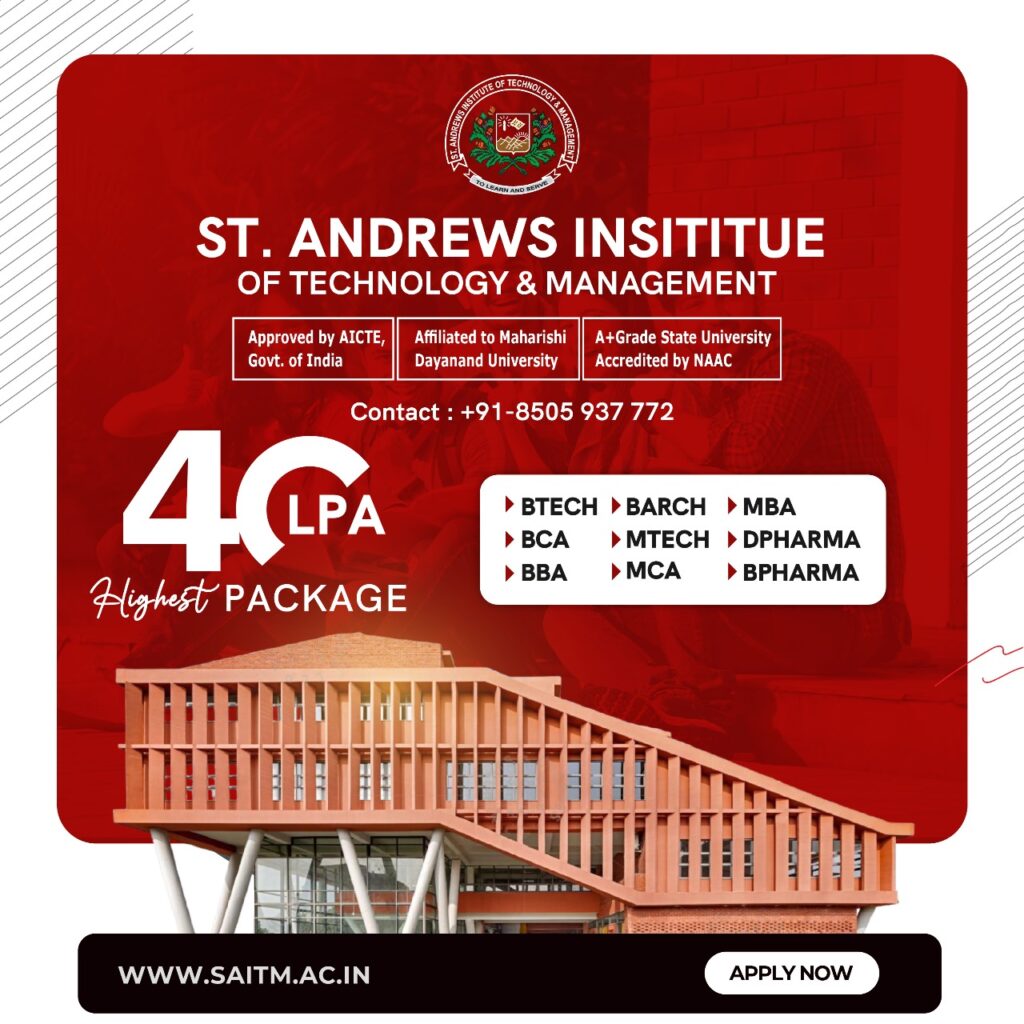
Here are some common paths:
Technology and IT Sector
Graduates can embark on careers in software development, IT consultancy, and cybersecurity. Government engineering colleges often have robust placement cells that connect students with top technology firms, offering roles such as software engineer, systems analyst, and IT manager.
Engineering and Design
There are ample opportunities in fields such as mechanical, civil, and electrical engineering. Graduates can work in design, manufacturing, and construction, contributing to large-scale projects and innovations.
Research and Development
With access to advanced facilities and research programs at government engineering colleges, graduates can pursue careers in research and development. This path involves working on cutting-edge technologies and contributing to scientific advancements.
Public Sector Jobs
Government engineering colleges frequently have strong ties with public sector organizations. Graduates can secure positions in government departments, public sector undertakings, and nationalized industries, benefiting from the direct recruitment opportunities often facilitated by these colleges.
Higher Education and Specialization
Graduates may choose to further their education with advanced degrees such as MTech or pursue specialized fields like artificial intelligence, robotics, and renewable energy. Government engineering colleges often provide excellent support for higher studies and research opportunities.
Entrepreneurship
Equipped with a solid technical background and problem-solving skills, B.Tech graduates from government engineering colleges are well-positioned to start their own ventures and become entrepreneurs.
Top Companies Hiring B.Tech Graduates from Government Engineering Colleges

Here are some of the leading firms that commonly recruit from these institutions:
Technology and IT Companies
Tata Consultancy Services (TCS)
Infosys
Wipro
HCL Technologies
Cognizant
Tech Mahindra
Accenture
IBM
Core Engineering and Manufacturing Companies
Larsen & Toubro (L&T)
Bharat Heavy Electricals Limited (BHEL)
Siemens
General Electric (GE)
Mahindra & Mahindra
Tata Steel
Oil and Natural Gas Corporation (ONGC)
Startups and Tech Giants
Amazon
Microsoft
Adobe
Samsung
Salary After BTech: Govt Engineering Colleges
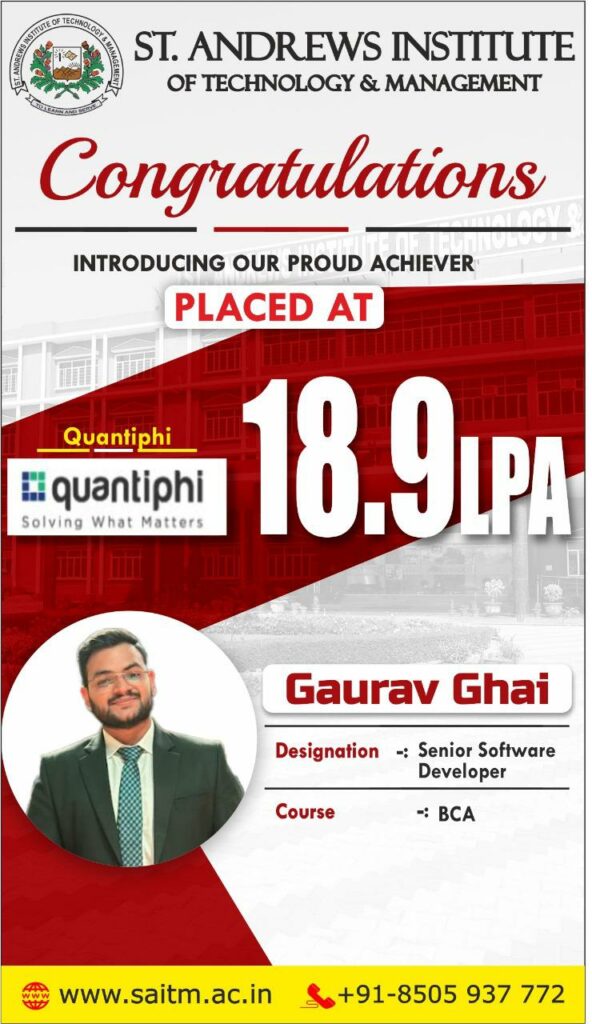
Here’s an overview of salary expectations for B.Tech graduates:
Entry-Level Positions
Fresh graduates from government engineering colleges typically start with competitive salaries. For roles such as software engineers, mechanical engineers, or civil engineers, starting salaries can range from ₹4 to ₹8 lakh per annum, depending on the sector and company.
Mid-Level Positions
With a few years of experience, B.Tech graduates can expect significant salary increases. Professionals in mid-level roles, such as project managers or senior engineers, can earn between ₹8 to ₹15 lakh per annum.
Senior-Level Positions
Experienced professionals with specialized skills or leadership roles can command higher salaries. Senior engineers, technical leads, or project directors from government engineering colleges can earn upwards of ₹15 lakh per annum, with potential for further growth.
FAQs
What are the entrance exams for admission to top government engineering colleges?
Popular entrance exams for securing admission to top government college for BTech in India include the Joint Entrance Examination (JEE) Main and Advanced, which are gateways into IITs, NITs, IIITs, and other centrally funded technical institutions. The Graduate Aptitude Test in Engineering (GATE) plays a significant role in postgraduate admissions and some undergraduate programs. State-specific exams, such as the West Bengal Joint Entrance Examination (WBJEE) and the Karnataka Common Entrance Test (KCET), are essential for admissions to state engineering colleges in West Bengal and Karnataka, respectively. These exams test candidates’ proficiency in subjects like Mathematics, Physics, and Chemistry, ensuring that only the most capable students are admitted to these prestigious institutions.
What is the fee structure of top government engineering colleges?
The fee structure of top government engineering colleges in India varies but is generally more affordable compared to private institutions. For example, the Indian Institutes of Technology (IITs) have an annual fee ranging from INR 2 to 3 lakhs. National Institutes of Technology (NITs) typically charge between INR 1.5 to 2.5 lakhs per year. State government colleges, such as those under Dr. A.P.J. Abdul Kalam Technical University (AKTU) in Uttar Pradesh, have fees around INR 80,000 to 1.5 lakhs annually. These fees cover tuition, hostel, and other academic expenses, making government colleges a cost-effective option for quality engineering education.
Which government university is best for BTech?
The Indian Institute of Technology (IIT) Delhi is often cited as the top government college for BTech in India. It is celebrated for its rigorous academic programs, groundbreaking research, and outstanding faculty. Consistently ranking among the top engineering institutions worldwide, IIT Delhi offers a broad spectrum of BTech specializations, modern facilities, and exceptional placement opportunities with leading national and international firms. Admission to this prestigious institution is highly competitive, primarily secured through the Joint Entrance Examination (JEE) Advanced. The institute’s robust alumni network and strong industry ties further bolster its reputation and significantly enhance the career prospects of its graduates.
Can I do BTech from government college without JEE?
Yes, obtaining a BTech degree from a top government college without taking the JEE is feasible, though options are somewhat limited. Several state-level engineering colleges and universities offer their own entrance tests, such as the West Bengal Joint Entrance Examination (WBJEE) for institutions in West Bengal and the Karnataka Common Entrance Test (KCET) for those in Karnataka. Moreover, some colleges may accept students based on their performance in state board exams or other specific criteria. However, it’s important to note that premier institutions like IITs and NITs mandate JEE scores for admission. Exploring the admission requirements of specific states or universities can reveal alternative routes to earning a BTech degree.
How many BTech government colleges are in UP?
Uttar Pradesh is host to a significant number of top government college for BTech, with around 60 such institutions across the state. Prestigious colleges like the Indian Institute of Technology (IIT) Kanpur and Harcourt Butler Technical University (HBTU) in Kanpur, along with various institutes affiliated with Dr. A.P.J. Abdul Kalam Technical University (AKTU), highlight the state’s status as an educational hub. These colleges offer a variety of engineering specializations and maintain high academic standards. Admissions to these institutions are primarily secured through entrance exams like JEE Main and UPSEE.
How many government engineering colleges are there in Delhi?
Delhi is home to several top government college for BTech, including the Indian Institute of Technology (IIT) Delhi, Netaji Subhas University of Technology (NSUT), Delhi Technological University (DTU), and Indira Gandhi Delhi Technical University for Women (IGDTUW). Overall, Delhi boasts about 10 government engineering colleges known for their high academic standards, cutting-edge research facilities, and strong placement records. Admission to these institutions is primarily through competitive entrance exams like JEE Main and JEE Advanced, ensuring that only the most qualified students are admitted.

